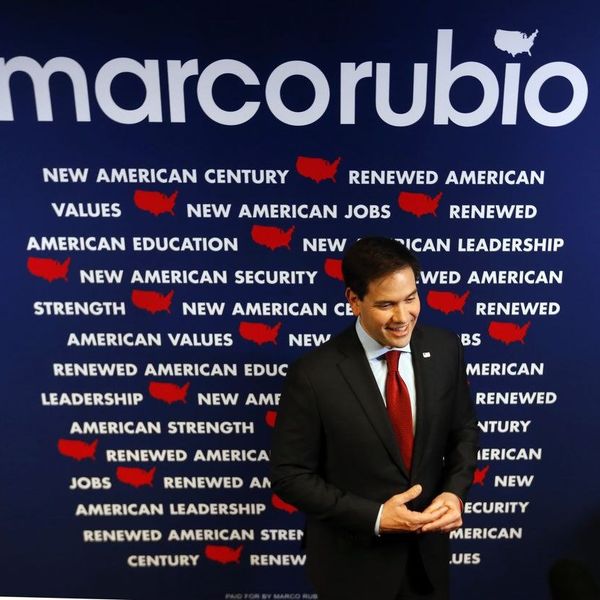On March 23, in front of a large audience of students at Liberty University in Lynchburg VA, Texas Senator Ted Cruz announced his bid for the Republican nomination for President of the United States. Cruz has officially kicked off the 2016 race as the first major candidate to throw his hat in the ring. He chose March 23 to announce his candidacy because it marks the fifth anniversary of the passing of the Patient Protection and Affordable Care Act, a piece of medical reform legislation which he and most conservatives vehemently oppose. The passage of the bill in 2010 was a major victory for Democrats and a defining moment in Barack Obama's presidency.
During his announcement speech, and to large applause, Cruz emphasized, “This is our fight. The answer will not come from Washington. It will come only from the men and women across this country, from people of faith, from lovers of liberty, to protect the Constitution." His inaugural speech outlined the basic values and policies that his campaign seeks to promote.
Cruz has been a polarizing figure since first entering the Senate in 2012. His strong conservative views and standoffish demeanor have made him a Tea Party hero and a villain amongst Progressives. In 2013, during a hearing over proposed gun control legislation, he and Senator Diane Feinstein (D-CA) became entangled in a heated exchange in which Feinstein, feeling insulted by Cruz's probes, retorted, “I have been in the Senate over twenty years … I am not a sixth grader."
Many of his peers and political commentators — even those on the same side of the aisle — feel he is too radical and unpresidential. Senator Rand Paul, a fellow Tea Party Republican, even called Cruz “reckless" and “dangerous" during an interview with Politico.The recognition of Ted Cruz as a strong candidate denotes a major ideological shift that has taken place in the Republican Party over the past six years. During the last two decades, moderates dominated the party, leaving conservatives to wallow as a minority. Throughout Obama's tenure, conservatives gained momentum as anger from the health care bill and the explosion of the national debt spurred people to action.
The 2016 race will be a long, hard road. It is hard to imagine that Cruz will win the Republican nomination without going blow for blow against equally strong candidates like the more libertarian Rand Paul (KY) and the moderate Chris Christie (NJ). If he does receive the nod from Republican delegates, he must likely face the well-established Hilary Clinton, the clear Democratic frontrunner, in the general election. Regardless, this upcoming election will be critical. If Republicans maintain control of Congress and win the presidency, they will be able to repeal and reject the policies of the last eight years. Cruz might be the man to lead Republicans to this promised land.
Cruz seeks to symbolically use the date March 23 as the moment that marks the reversal of liberal policies and the putting forth of a new conservative vision for the nation. Only time will tell if Cruz and this new movement will gain traction and fundamentally impact the country or simply be a small blip on the timeline of American political history.





















